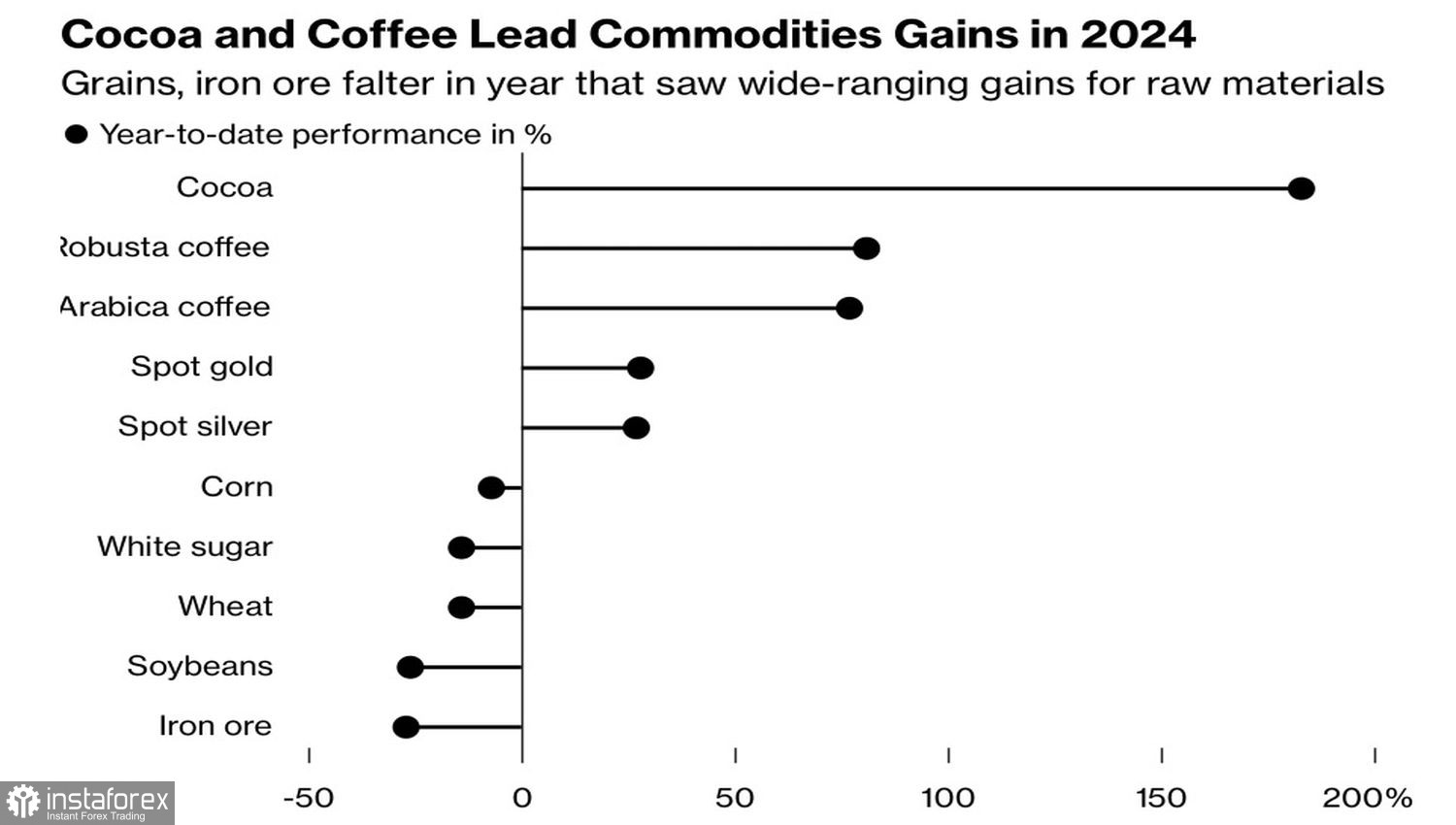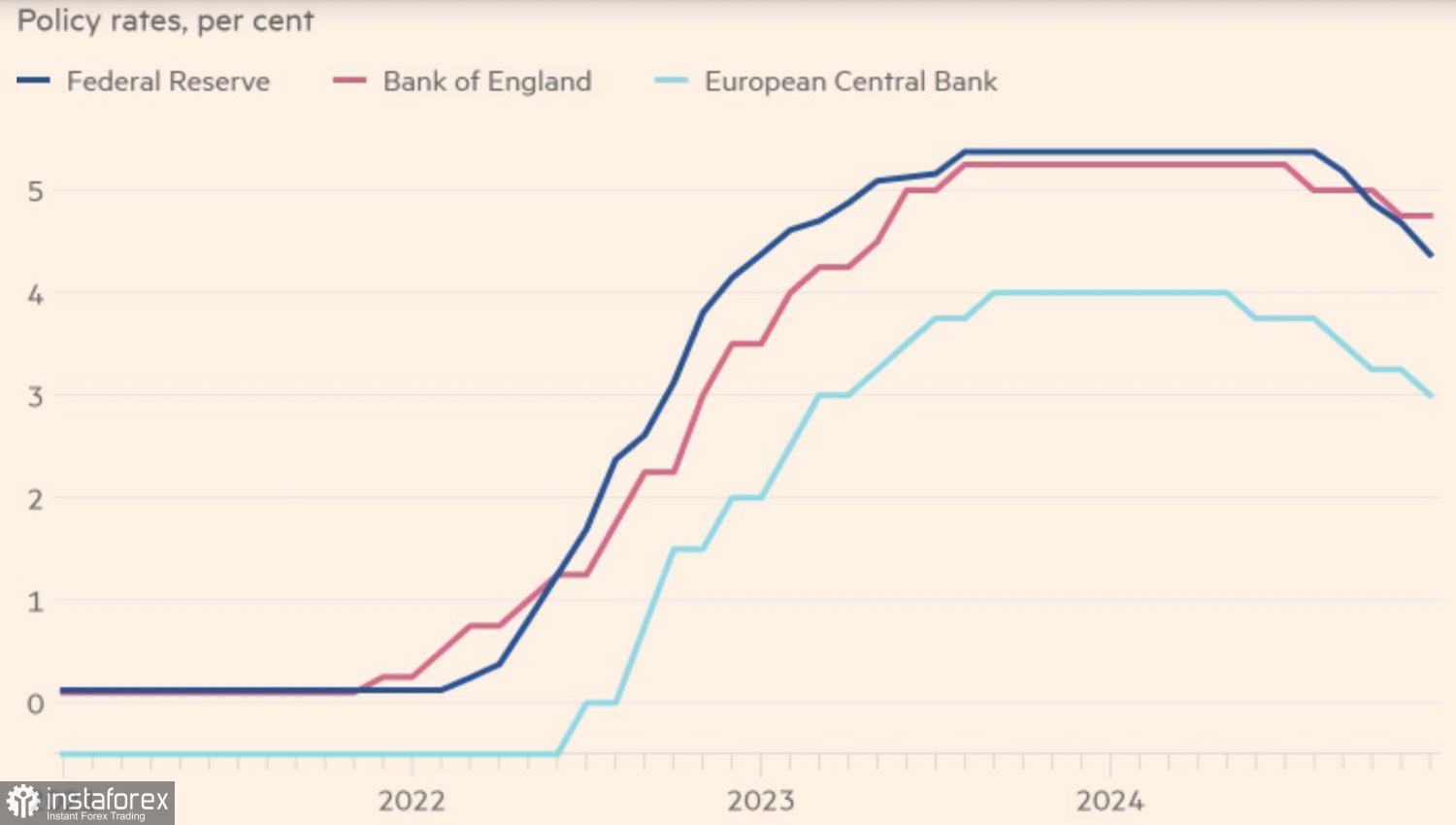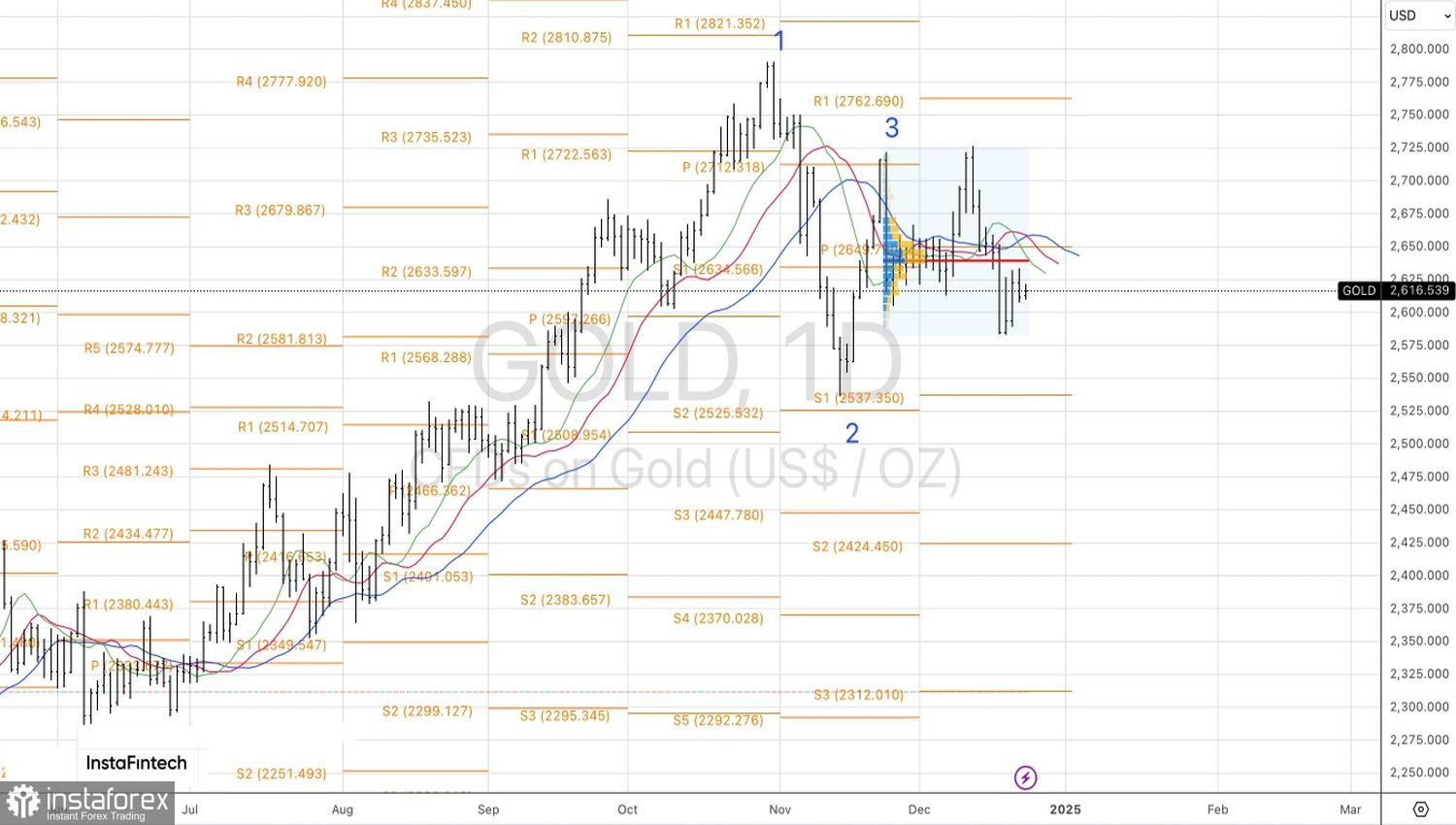Slow down, gold bulls! In 2024, gold prices skyrocketed by 30% from the beginning of the year, reaching an all-time high of $2,790 per ounce. This surge was driven by aggressive purchases by central banks and widespread monetary policy easing. However, the Federal Reserve's decision to pause its actions, along with rumors of a potential ceasefire in Eastern Europe, has dampened the bullish momentum for XAU/USD.
Commodity Market Asset Dynamics

Tanglewood Total Wealth Management observes that during the Cold War, central banks allocated approximately 30% of their funds to gold purchases to replenish their reserves. However, before the conflict in Ukraine, this figure had decreased to 10%. Since then, it has risen back to nearly 20%. As a result, developments in Eastern Europe are crucial for the XAU/USD currency pair. If Donald Trump succeeds in ending the war, the value of the precious metal could face significant pressure.
Gold is already being affected by the slowing monetary policy easing cycles of major central banks around the world. The Fed, after a rate cut, indicated a pause in January. The Bank of England decided not to adjust its borrowing costs. Similarly, both Canada and Mexico have abandoned plans for aggressive 50-basis-point rate increases, and the Swiss National Bank's statements have raised doubts about the continuation of monetary easing cycles.
Central Bank Rate Trends

As central banks lower interest rates, fiat currencies tend to weaken, which benefits gold. Simultaneously, bond market yields decline, benefitting the non-yield-bearing precious metal. Consequently, any pauses in monetary easing or slower rate cuts can negatively impact the XAU/USD exchange rate.
Gold's reaction to monetary policy is clear; for example, it rallied after the U.S. personal consumption expenditures (PCE) index slowed to 0.1% month-over-month in November, but then dropped when the Federal Open Market Committee (FOMC) updated its forecasts. Therefore, the main challenges for gold in 2025 are likely to include rising real yields on Treasury bonds, an acceleration in the U.S. economy, and the resulting strengthening of the dollar.

The outcome will largely depend on the implementation of Donald Trump's policies. Fiscal stimulus and deregulation could boost U.S. GDP growth. However, when combined with anti-immigration policies and tariffs, inflation may also rise. This scenario could lead to a rally in the USD index and higher yields on U.S. bonds. Furthermore, if the conflict in Eastern Europe comes to an end, it could significantly impact the prospects for XAU/USD bulls.
From a technical perspective, the daily chart for gold shows a "Splash and Shelf" pattern based on a 1-2-3 structure. As long as prices remain below fair value and a combination of moving averages, the outlook for gold remains bearish. A decline in gold prices below support levels at $2,608 and $2,590 per ounce may warrant opening or increasing short positions.





















